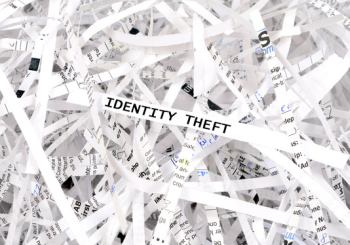How to Report Identity Theft – 4 Things You Must Do Immediately
 Beth Givens, director the Privacy Rights Clearinghouse, says that “Ultimately, you cannot prevent identity theft from happening to you […] You can only reduce your chances.”
Beth Givens, director the Privacy Rights Clearinghouse, says that “Ultimately, you cannot prevent identity theft from happening to you […] You can only reduce your chances.”
While there are many things you can do to make it more difficult to steal your identity, identity theft can happen to anyone. If your information is in a company or government database that is accessed by hackers, then you may end up being a victim of identity theft due to no fault of your own.
If you believe you are a victim of identity theft, then you’re probably asking questions like “Where do I report identity theft?” and “How do you report identity theft?” We shall answer these questions in this how-to guide.
How to Report Identity Theft
If you’ve recently discovered that you’re a victim of identity theft, there are several steps you should take as soon as possible:
• Tell your financial institution.
• File a complaint with the FTC.
• Tell law enforcement officials.
• Tell the credit-reporting bureaus.
It is important for future reference to keep a record of all the conversations you have when taking these steps and to keep copies of any correspondence.
Reporting identity theft to your bank is relatively easy. The other three steps require more explanation.
File a Complaint with the FTC
It is important to file a complaint with the FTC to help law enforcement to track down identity thieves. The FTC can also report your case to relevant companies and government agencies.
You can use the FTC Complaint Assistant website to file your complaint online: https://www.ftccomplaintassistant.gov/
You should also print out your complaint and send it to the police so they can put it in their police report.
Reporting to the Police and Obtaining your Identity Theft Report
The most important aspect when reporting identity theft to the police is to give them as much information as you can. You should contact your local police at the least, and may also consider contacting other enforcement agencies like the State Attorney General and the FBI.
You should try to obtain both the police report number and the official police report itself. The police report can serve as your Identity Theft Report. Having an Identity Theft Report allows you to protect yourself in many ways, such as allowing you to permanently block fraudulent information from appearing on your credit report.
If the police refuse to provide the police report, you can use this cover letter to explain the importance of it to you:
http://www.ftc.gov/bcp/edu/microsites/idtheft/downloads/memorandum.pdf
How to Report Identity Theft to Credit Bureaus
You must tell the credit bureaus to place a fraud alert on your credit reports. A fraud alert prevents an identity thief from opening more accounts in your name.
To do this, you only need to contact one of the three three credit bureaus:
• TransUnion – http://www.transunion.com/
• Equifax – http://www.equifax.com/
• Experian – http://www.experian.com/
Once you place the fraud alert with one bureau, they will contact the other two for you. You should receive confirmation from all three companies. If you don’t receive confirmation from any of the companies, be sure to contact them directly to ensure that the fraud alert is in place.
Next you should ask each of the credit bureaus for a free copy of your credit report. You should check your credit report carefully:
• Look for inquiries from companies you have had no dealings with.
• Look for accounts you didn’t open.
• Look for debts that you aren’t responsible for.
• Check that all your information is correct.
If you notice any fraudulent or erroneous information, you should get it corrected. This is done by sending a bureau your Identity Theft Report from the police with a cover letter detailing the problems with your credit report.

